
Serving Challenge Together Groups
Lets Take up this Challenge together
New Together Group Weeks Released Sunday at 11am
We are stronger together and any challenge is better when helped.
I encourage you to meeting with other people to watch each week’s video and go through the discussion questions.
Here are the Official Groups
Burro’s Wednesday 6:30pm
Escher’s Thursday 7pm
Pastor’s Thursday 11am
In you would like to create a group Get in touch with pastor and we will promote it.
New Song , The Jesus Way
New Song for the New Series (Serving Challenge)
Here is Grace’s Recording for Sunday
Listen to the Original (We Changed The Lyrics)
On September 15th 2024 we are singing
The Jesus Way(CCLI 7217888)
© 2023 Be Essential Songs; Cashagamble Jet Music; Phil Wickham Music; Simply Global Songs
1. If you curse us, then we will bless you
If you hurt us, we will forgive
If you hate us, then we will love you
There’s love in the Jesus way
2. If you’re helpless, we will defend you
if you’re burdened, we’ll share the weight
if you’re hopeless, then let us sh’ow you
There’s hope in the Jesus way
(REFRAIN)
We follow Jesus; we follow Jesus
He wore our sin we, gladly wear His name
He is the treasure; He is the answer
There’s love in the Jesus way
3. If you strike us, we will embrace you
if you chain us, we’ll sing His praise
if you kill us, our home is heaven
There’s hope in the Jesus way (REFRAIN)x2
[Sunday] Under Pressure - Hold Fast: 2nd Timothy
When under pressure, there is hope and resilience in the love of our Lord Jesus Christ which causes us to look at the world differently.
When under pressure, there is hope and resilience in the love of our Lord Jesus Christ which causes us to look at the world differently.
Questions for the Week: Hold Fast: Paul's 2nd Letter of Timothy - Under Pressure
How have you experienced pressure or suffering in your own life? In what ways has your faith helped you to endure these challenges?
Read 2 Timothy 4. How does Paul speak of pressure and hope? What does he cling to for this hope?
How does the love of God, as revealed in the cross of Jesus Christ, change everything? What does it mean to love others as Christ loves us?
When looking at all of 2 Timothy, what is the biggest piece of encouragement you can take with you?
What Had happened at Grace this week.
Bible Club Pool Party and Avery's First Communion [Photos]
Great Way to End the Summer!
Congradulations fo Avery, Welcome to the Table of our Lord with us.
[Sunday] Let My People Go - Hold Fast: 2nd Timothy
All of Scripture is God-breathed; in its inspired voice, we hear the good news, useful teaching, correction, instruction, and training for a life well lived in freedom.
All of Scripture is God-breathed; in its inspired voice, we hear the good news, useful teaching, correction, instruction, and training for a life well lived in freedom.
Questions for the Week: Hold Fast: Paul's 2nd Letter of Timothy - Let My People Go
How does the idea that the Scriptures are "breathed out by God" impact your understanding of their authority and relevance in your life?
Read 2 Timothy Ch 3. What scary things does Paul highlight? Where does he point to find hope?
How can we discern between true and false teachers, and what steps can we take to protect ourselves and others from their influence?
In what ways have you experienced God's freedom in your own life? Share specific examples and how these experiences have shaped your faith.
What Had happened at Grace this week.
[Sunday] Lightning Rod - Hold Fast: 2nd Timothy
Amidst so much irreverent babble and ignorant controversies, it's easy to become entrenched in our "lightning rod" beliefs. What if, instead, we stood in the good news of Jesus?
Amidst so much irreverent babble and ignorant controversies, it's easy to become entrenched in our "lightning rod" beliefs. What if, instead, we stood in the good news of Jesus?
Questions for the Week: Hold Fast: Paul's 2nd Letter of Timothy - Lightning Rod
What do you think a "lightning rod" issue is in your family or community? How does it create division? Can you think of an example?
Read 2 Timothy 2:14-26. How can we better focus on Jesus and His love for us, rather than getting caught up in disagreements? What practical steps can we take to do this?
The sermon emphasized that God's foundation is firm. How does the knowledge of “being His” bring you comfort and peace?
More Info From the Sermon
The Second Testament by Scott McKnight
A Tranlation of the New Testament.
What Had happened at Grace this week.
New Hymn , “Earth and All Stars” (LW 438/LSB 817)
New Classic about Give us this Day our Daily Bread.
Here is Grace’s Recording for Sunday
Listen to the Original
On August 25th 2024 we are singing
“Earth and All Stars” (LW 438/LSB 817)
This Song is in our Hymnal
But Grace has never used it.
1. Earth and all stars!
Loud rushing planets!
Sing to the Lord a new song!
Hail, wind and rain!
Loud blowing snow storm!
Sing to the Lord a new song!
REFRAIN
HE HAS DONE MARVELOUS THINGS.
I TOO WILL PRAISE HIM WITH A NEW SONG!
3. Trumpet and pipes!
Loud clashing cymbals!
Sing to the Lord a new song!
Harp lute and lyre!
Loud humming cellos!
Sing to the Lord a new song! (REFRAIN)
4. Engines and steel!
Loud pounding hammers!
Sing to the Lord a new song!
Limestone and beams!
Loud building workers!
Sing to the Lord a new song! (REFRAIN)
5. Classrooms and labs!
Loud boiling test tubes!
Sing to the Lord a new song!
Athlete and band!
Loud cheering people!
Sing to the Lord a new song! (REFRAIN)
7. Children of God,
Dying and rising,
Sing to the Lord a new song!
Heaven and earth,
Hosts everlasting,
Sing to the Lord a new song! (REFRAIN)
[Sunday] The Athlete - Hold Fast: 2nd Timothy
Paul, with a whiff of sarcasm, pronounces we all know an athlete never cheats in their game, which makes us ask ourselves, “Have we tried to shortcut the faith?
Paul, with a whiff of sarcasm, pronounces we all know an athlete never cheats in their game, which makes us ask ourselves, “Have we tried to shortcut the faith?
Questions for the Week: Hold Fast: Paul's 2nd Letter of Timothy - The Athlete
Think of a time someone cheated at a sport or game. What effect did that have on the final results?
Read 2 Timothy 2:1-13. What do you find most challenging about Paul’s message to endure suffering and hold fast to the Gospel of Jesus?
Can you share a time when you felt like you were taking a "shortcut" in your faith or in life? What did you learn from that experience?
With the hope of the resurrection, how can we support one another when we are facing difficulties and challenges?
What Had happened at Grace this week.
How the 1904 Marathon Became One of the Weirdest Olympic Events of All Time
Athletes drank poison, dodged traffic, stole peaches and even hitchhiked during the 24.85-mile race in St. Louis
History | Updated: June 27, 2024 | Originally Published: August 7, 2012
How the 1904 Marathon Became One of the Weirdest Olympic Events of All Time
Athletes drank poison, dodged traffic, stole peaches and even hitchhiked during the 24.85-mile race in St. Louis
Read the Article at its original site to support their work
https://www.smithsonianmag.com/history/how-the-1904-marathon-became-one-of-the-weirdest-olympic-events-of-all-time-14910747/
America’s first Olympics may have been its worst, or at least its most bizarre. Held in 1904 in St. Louis, the games were tied to that year’s World’s Fair, which celebrated the centennial of the Louisiana Purchase while advancing, as did all such turn-of-the-century expositions, the notion of American imperialism.
Although there were moments of surprising and genuine triumph (George Eyser, a gymnast with a wooden leg, earned six medals, including three gold), the games were largely overshadowed by the fair, which offered its own roster of sporting events, including the controversial Anthropology Days, in which a group of “savages” recruited from the fair’s international villages competed in a variety of athletic feats for the amusement of white spectators.
Skip Ad
The Olympics’ signal event, the marathon, was conceived to honor the classical heritage of Greece and underscore the connection between the ancient and modern. But from the start, the 1904 marathon was less showstopper than sideshow, an absurdist spectacle that seemed more in keeping with the carnival atmosphere of the fair than the reverential mood of the games. After seeing how the event played out, officials nearly abolished it for good.
Some of the athletes competing in the marathon pose for a group photo. Public domain via Wikimedia Commons
The contenders
A few of the runners were recognized athletes who had either won or placed in the Boston Marathon or in previous Olympic marathons. Americans Sam Mellor, A.L. Newton, John Lordon, Michael Spring and Thomas Hicks, all experienced marathoners, were among the favorites.
But the majority of the field was composed of middle-distance runners and assorted oddball characters. Fred Lorz, an American who trained at night because he worked as a bricklayer by day, earned his spot in the Olympics by placing in a special five-mile race sponsored by the Amateur Athletic Union. Other noteworthy contenders included two men from the Tswana tribe of South Africa—the first Black Africans to ever participate in the modern Olympics— who were in St. Louis as part of the South African World’s Fair exhibit. They are fabled to have arrived at the starting line barefoot, though photos show that at least one was wearing shoes.
Len Tau and Jan Mashiani were the first Black Africans to participate in the modern Olympics. Public domain via Wikimedia Commons
Then there was Félix Carvajal, a Cuban national and former mailman who raised money to come to the United States by demonstrating his running prowess throughout Cuba, once trekking the length of the island. Upon his arrival in New Orleans, he reportedly lost all his money in a dice game and had to walk and hitchhike to St. Louis. A 5-foot-1 man, he presented a slight but striking figure at the starting line, attired in a white, long-sleeved shirt; long, dark pants; a beret; and a pair of street shoes. Legend has it that one fellow Olympian took pity, found a pair of scissors and cut Carvajal’s trousers at the knee.
The main event
On August 30, at precisely 3:03 p.m., David R. Francis, president of the Louisiana Purchase Exposition, fired the starting pistol, and the men were off. Heat and humidity soared into the low 90s, and the 24.85-mile course—which one fair official called “the most difficult a human being was ever asked to run over”—wound across roads inches deep in dust. The race was slightly shorter than today’s marathons, which are almost always 26.2 miles. “This was more like cooking than civil engineering,” the New York Times wrote in 2012. “Race directors designed their courses by a sense of feel, not by a fastidious recipe.”
The course had seven hills, varying from 100 to 300 feet high, some with brutally long ascents. In many places, cracked stone was strewn across the roadway, creating perilous footing. The men had to constantly dodge crosstown traffic, delivery wagons, railroad trains, trolley cars and people walking their dogs. Cars carrying coaches and physicians motored alongside the runners, kicking the dust up and launching coughing spells.
There was only one spot where athletes could officially secure fresh water, 12 miles from the start of the race. (Carvajal somehow got a drink at a water tower six miles into the course.) James Sullivan, the chief organizer of the games, wanted to minimize fluid intake to test the limits and effects of purposeful dehydration, a common area of research at the time.
Hicks, an experienced runner from Massachusetts, led the 32 starters from the gun. William Garcia of California nearly became the first fatality of an Olympic marathon when he collapsed on the side of the road some eight miles from the finish. The dust had coated his esophagus and ripped his stomach lining, causing serious hemorrhaging. Had he gone unaided an hour longer, he might have bled to death.
Lordon, one of the Americans, suffered a bout of vomiting and gave up. Len Tau, one of the South African participants, was chased a mile off course by a wild dog. Carvajal trotted along in his cumbersome shoes and billowing shirt, making good time even though he paused to chat with spectators in broken English. The St. Louis Post-Dispatch’s car “passed the little Cuban three miles out, still running at an even gait, and he waved his cap and yelled enthusiastically,” as the paper reported the following day.
Félix Carvajal, a Cuban runner, is rumored to have cut his long pants off at the knee before the race. Public domain via Wikimedia Commons
Report this ad
On one occasion, Carvajal stopped at a car, saw that its occupants were eating peaches, and asked for one. When the strangers refused, he playfully snatched two of the fruits and ate them as he ran. A bit further along the course, he stopped at an orchard and snacked on some apples, which turned out to be rotten. Suffering from stomach cramps, he laid down and took a nap. Mellor, now in the lead, also experienced severe cramping. He slowed to a walk and eventually stopped. At the nine-mile mark, cramps also plagued Lorz, who decided to hitch a ride in one of the accompanying automobiles, waving at spectators and fellow runners as he passed.
Sam Mellor, an American runner, experienced severe cramping during the event. Public domain via Wikimedia Commons
At the time, the rules of the Olympic marathon “allowed runners to be coached and assisted by race officials,” writes George R. Matthews in America’s First Olympics: The St. Louis Games of 1904. Hicks, one of the early American favorites, “received an inordinate amount of coaching and some extraordinary assistance during the marathon.”
At the ten-mile mark, Hicks came under the care of a two-man support crew, whom he begged for a drink. They refused, instead sponging out his mouth with warm distilled water. Seven miles from the finish, his handlers fed him a concoction of strychnine and egg whites—the first recorded instance of drug use in the modern Olympics, which had no rules about performance-enhancing drugs at the time. Strychnine, in small doses, was commonly used a stimulant at the time; today, the Centers for Disease Control and Prevention describes it as a “strong poison” that is “used primarily as a pesticide, particularly to kill rats.” Hicks’ team also carried a flask of French brandy but decided to withhold it until they could gauge the runner’s condition.
Meanwhile, Lorz, recovered from his cramps, emerged from his 11-mile ride in the automobile. One of Hicks’ handlers saw him and ordered him off the course, but Lorz kept running and finished with a time of 3 hours, 13 minutes. The crowd roared. But the cheers quickly turned to boos as the truth came to light. Lorz smiled and claimed that he had never intended to accept the honor; he’d finished only for the sake of a joke.
The brandy-fueled victor
Report this ad
Hicks, the strychnine coursing through his blood, had grown ashen and limp. When he heard that Lorz had been disqualified, he perked up and forced his legs into a trot. His trainers gave him another dose of strychnine and egg whites, this time with some brandy to wash it down. They fetched warm water and soaked his body and head. After the bathing, he appeared to revive and quickened his pace. Race official Charles Lucas wrote:
Over the last two miles of the road, Hicks was running mechanically—like a well-oiled piece of machinery. His eyes were dull, lusterless; the ashen color of his face and skin had deepened; his arms appeared as weights well tied down; he could scarcely lift his legs, while his knees were almost stiff.
Hicks reaches the 20-mile mark. Public domain via Wikimedia Commons
The athlete began hallucinating, believing the finish line was still 20 miles away. During the last mile, he begged for something to eat. Then he begged to lie down. He drank more brandy but was refused tea. He swallowed two more egg whites. He walked up the first of the last two hills, then jogged down on the incline. Swinging into the stadium, he tried to run but was reduced to a graceless shuffle. The St. Louis Post-Dispatch described the moments that followed:
There was not a semblance of the elastic spring with which he had started. He must have heard the uproar about him, but he betrayed no sign of it. He was past that. He did look up once when the din was at its height. He was within a few yards of the finish. His lower jaw was hanging as in imbecility, his eyes stared blankly, but his pitiful expression didn’t change.
Hicks’ trainers carried him over the line, holding him aloft while his feet moved back and forth, and he was declared the winner. It took four doctors and one hour for Hicks to feel well enough just to leave the grounds. He declared, “Never in my life have I run such a tough course. The terrific hills simply tear a man to pieces.” Hicks and Lorz would meet again at the Boston Marathon the following year, which Lorz won—this time without the aid of anything but his legs.
Get the latest History stories in your inbox?
Click to visit our Privacy Statement.
Karen Abbott | | READ MORE
Karen Abbott is a contributing writer for history for SmithsonianMag.com and the author of the books Sin in the Second City and American Rose. Her forthcoming book, Liar, Temptress, Soldier, Spy, will be published by HarperCollins in September.
[Sunday] Not Ashamed - Hold Fast: 2nd Timothy
While Paul sits in dirty chains, he encourages those who hear to view weakness, suffering, and shame not through the lens of the shaming world but through the cross of Jesus.
- When we have wanted to avoid them at all costs to stay away from evil, Jesus prays, “My prayer is not that you take them out of the world but that you protect them from the evil one.”
Questions for the Week: Hold Fast: Paul's 2nd Letter of Timothy - Not Ashamed
Can you share a time when you felt weak but God joined you in your weakness? How can we better embrace our vulnerabilities and trust in God's strength?
Read 2 Timothy 1. Why does Paul call out Phygelus and Hermogenes? When are we tempted to push aside others in pursuit of power?
Are there areas in your life where you feel ashamed? How can we apply the message of the cross to overcome these feelings?
Luke Throwing away His Lightsaber in The Last Jedi
What Had happened at Grace this week.
New Song, Luther's If God Had Not Been On Our Side
Classic song of Martin Luther
Here is Grace’s Recording for Sunday
Listen to the Orginal
On August 11th 2024 we are singing
”If God Had Not Been On Our Side”
This is a song of Martin Luther.
We are using an updated tune
Martin Luther, 1483-1546; tr. The Lutheran Hymnal, St. Louis, 1941, alt.
Tune: Christian Egenolff, 1502-1555
adapted by Ralph Vaughan Williams, from Enlarged Songs of Praise
Arr: Koiné
1. If God had not been on our side and had not come to aid us,
our foes with all their pow'r and pride would surely have dismayed us,
for we, his flock, would have to fear the devil's wolves, both far and near,
.… who rise in might against us.
Their furious wrath, did God permit, Would surely have consumed us
And as a deep and yawning pit With life and limb entombed us.
A hellish storm would o'er us roll From Satan, who desires our soul
And seeks to overwhelm us.
3. Blest be the LORD, who foiled their threat that they could not devour us.
Our souls, like birds, escaped their net; they could not overpow'r us.
The snare is broken— we are free! Our helper and our strength is he
…. who made the earth and heavens.
Hold Fast: 2 Timothy: Paul's Last Letter (Teaching Series)
Paul sits in prison as the weather gets colder. He's writing to his friend Timothy, encouraging him to remember the Gospel and his humble upbringing in it, to watch out for those who are ashamed of the marks of Christ, and for Timothy to bring him a coat. Hold Fast to the humble faith, Timothy!
Hold Fast: 2 Timothy: Pauls Last Letter
Paul sits in prison as the weather gets colder. He's writing to his friend Timothy, encouraging him to remember the Gospel and his humble upbringing in it, to watch out for those who are ashamed of the marks of Christ, and for Timothy to bring him a coat. Hold Fast to the humble faith, Timothy!
Reading Plan
Read around the readings for Sunday
8/11/24
Lamentations 1:1-6
2 Timothy 1:1-18
Luke 17:5-108/18/24
Jeremiah 29:1, 4-7
2 Timothy 2:1-13
Luke 17:11-198/25/24
Jeremiah 29:10-14
2 Timothy 2:14-26
Mark 16:1-89/1/24
Ezekiel 37:7-10
2 Timothy 3:10-4:5
Luke 18:9-149/8/24
Exodus 33:12-23
2 Timonthy 4:6-18
Matthew 28:16-20
[Sunday] Them - Missio Dei
When we have wanted to avoid them at all costs to stay away from evil, Jesus prays, “My prayer is not that you take them out of the world but that you protect them from the evil one.
- When we have wanted to avoid them at all costs to stay away from evil, Jesus prays, “My prayer is not that you take them out of the world but that you protect them from the evil one.”
Questions for the Week: Missio Dei: The Great Sending Part 3 -Them
What motivates a church to circle the wagons and escape from the culture around it? On the other hand, what pushes a church into its mission field?
Read John 17:1-26. Jesus prayed that His disciples would be sent into the world. What does this mean to you? How can we actively participate in God's mission in our daily lives?
We are all sinners. How does understanding this truth impact your relationships with others? How does it change the way you view yourself and those around you?


























![[Sunday] Under Pressure - Hold Fast: 2nd Timothy](https://images.squarespace-cdn.com/content/v1/5852f18a20099e30cd2c01dc/1725559137453-X2SBAMH5MQ0A7MR04OHV/Hold+Fast+5a.jpg)


![[Sunday] Bells On Christmas - Kingdom Way](https://images.squarespace-cdn.com/content/v1/5852f18a20099e30cd2c01dc/1734099772571-8RJ2AT9SECGMA7R3QR6Q/KW+4a.jpg)



![[Wednesday] Christmas Variety - Mid-week Advent](https://images.squarespace-cdn.com/content/v1/5852f18a20099e30cd2c01dc/1733924964327-I9YR743FVTOYQ86ZWMRY/Wed+2aaa.jpg)
![Kids Christmas Party! [Photos]](https://images.squarespace-cdn.com/content/v1/5852f18a20099e30cd2c01dc/1733928628392-N7477FH4B9A06TS1YAF5/PXL_20241208_175846459.jpg)

![[Sunday] Guiding Light - Kingdom Way](https://images.squarespace-cdn.com/content/v1/5852f18a20099e30cd2c01dc/1733503885800-F4KROQ9IYUMJNWO7F1XF/KW+3a.jpg)

![[Wednesday] Century of Gifts - Mid-week Advent](https://images.squarespace-cdn.com/content/v1/5852f18a20099e30cd2c01dc/1733193276465-55WSP3L40ZUEL4QUY98B/Wed+1aaa.jpg)






















![Bible Club Pool Party and Avery's First Communion [Photos]](https://images.squarespace-cdn.com/content/v1/5852f18a20099e30cd2c01dc/1725641368247-HW2DMPQVQ9JOB1AQY6CM/IMG_7181.jpeg)












































![[Sunday] Let My People Go - Hold Fast: 2nd Timothy](https://images.squarespace-cdn.com/content/v1/5852f18a20099e30cd2c01dc/1725044379823-GG1TSRGZRY8X6BU5HEVD/Hold+Fast+4a.jpg)

![[Sunday] Lightning Rod - Hold Fast: 2nd Timothy](https://images.squarespace-cdn.com/content/v1/5852f18a20099e30cd2c01dc/1724380958991-OUIZZ2EFML212P2CP84U/Hold+Fast+3a.jpg)

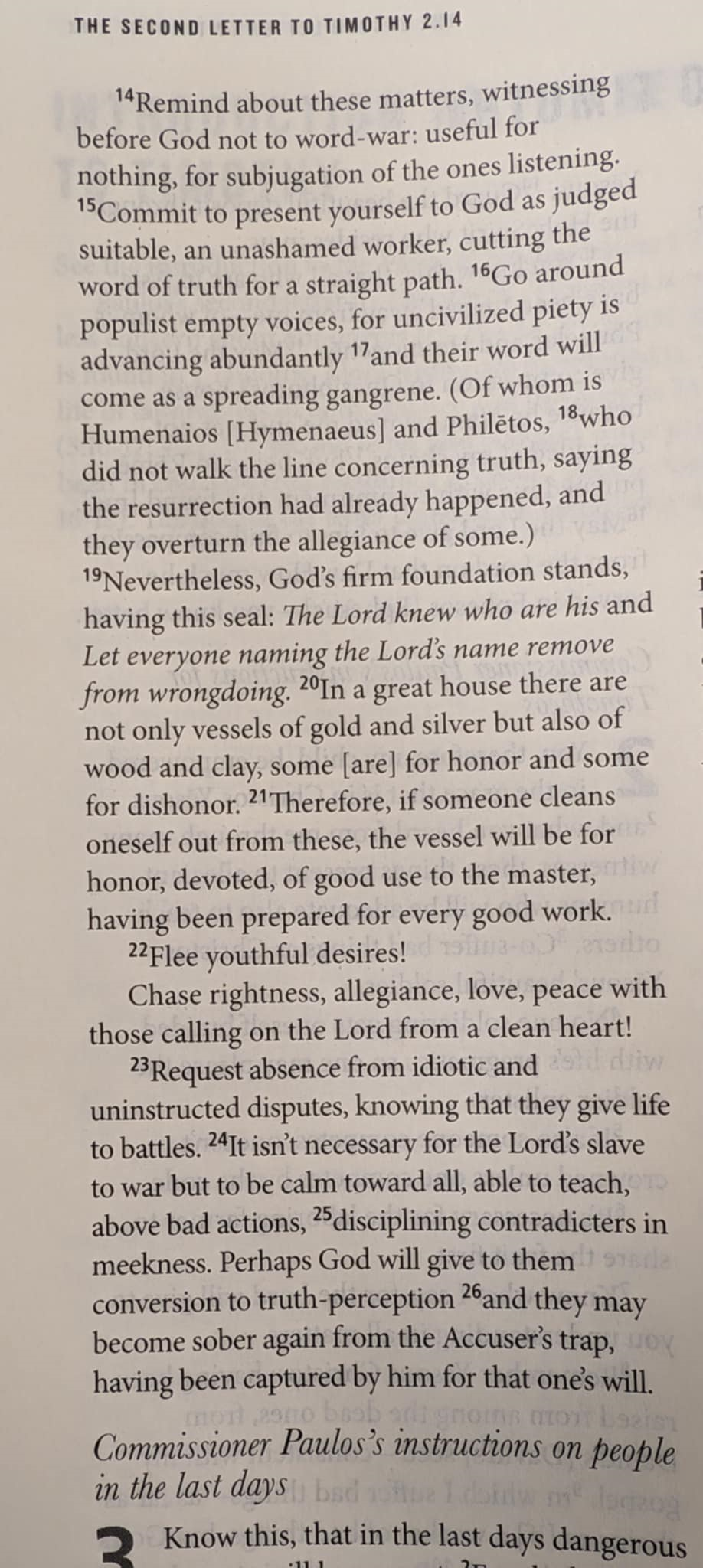



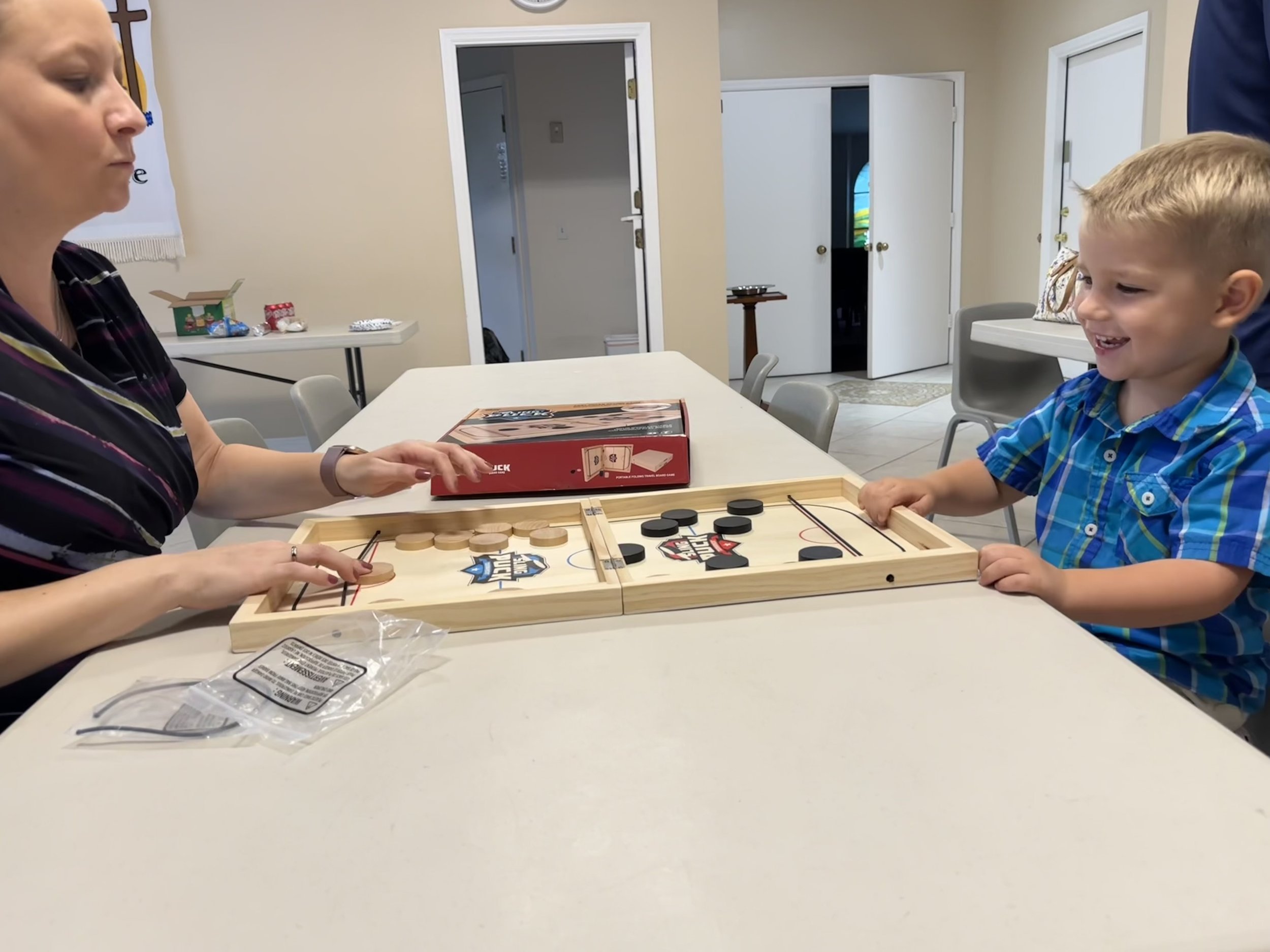



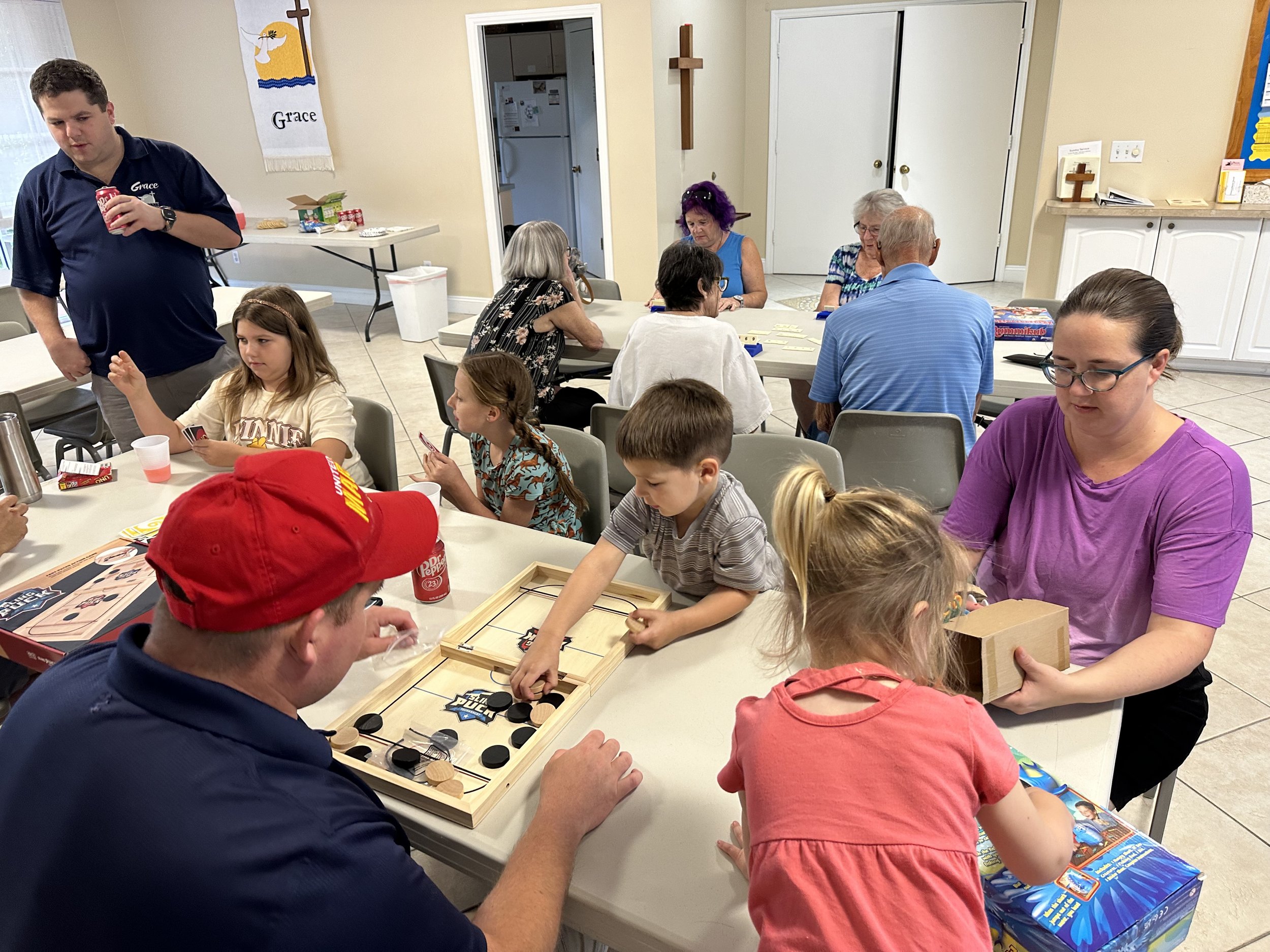


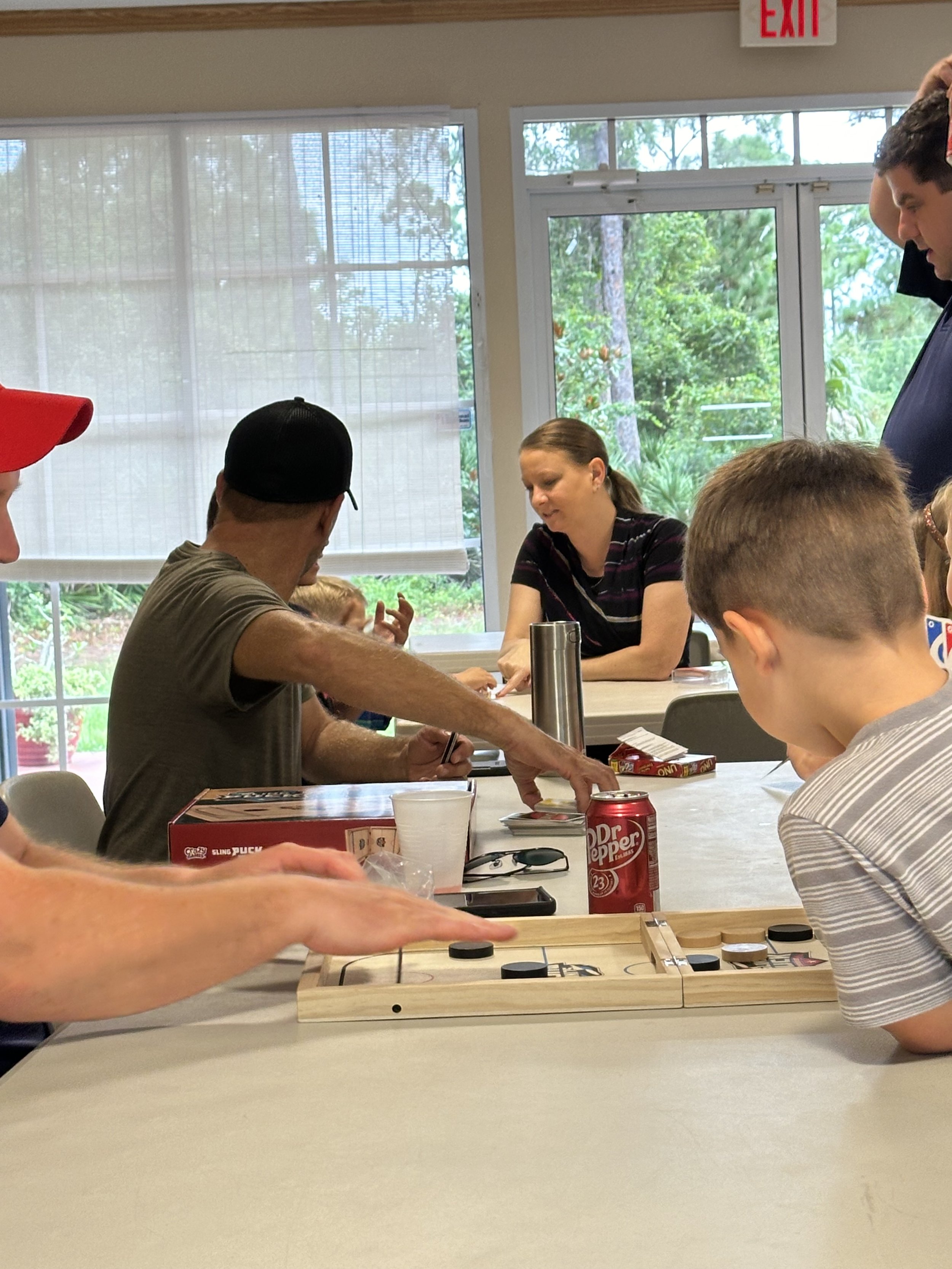




![[Sunday] The Athlete - Hold Fast: 2nd Timothy](https://images.squarespace-cdn.com/content/v1/5852f18a20099e30cd2c01dc/1723753850309-TEXPO7OMFKNHBC9VFDLG/Hold+Fast+2a.jpg)
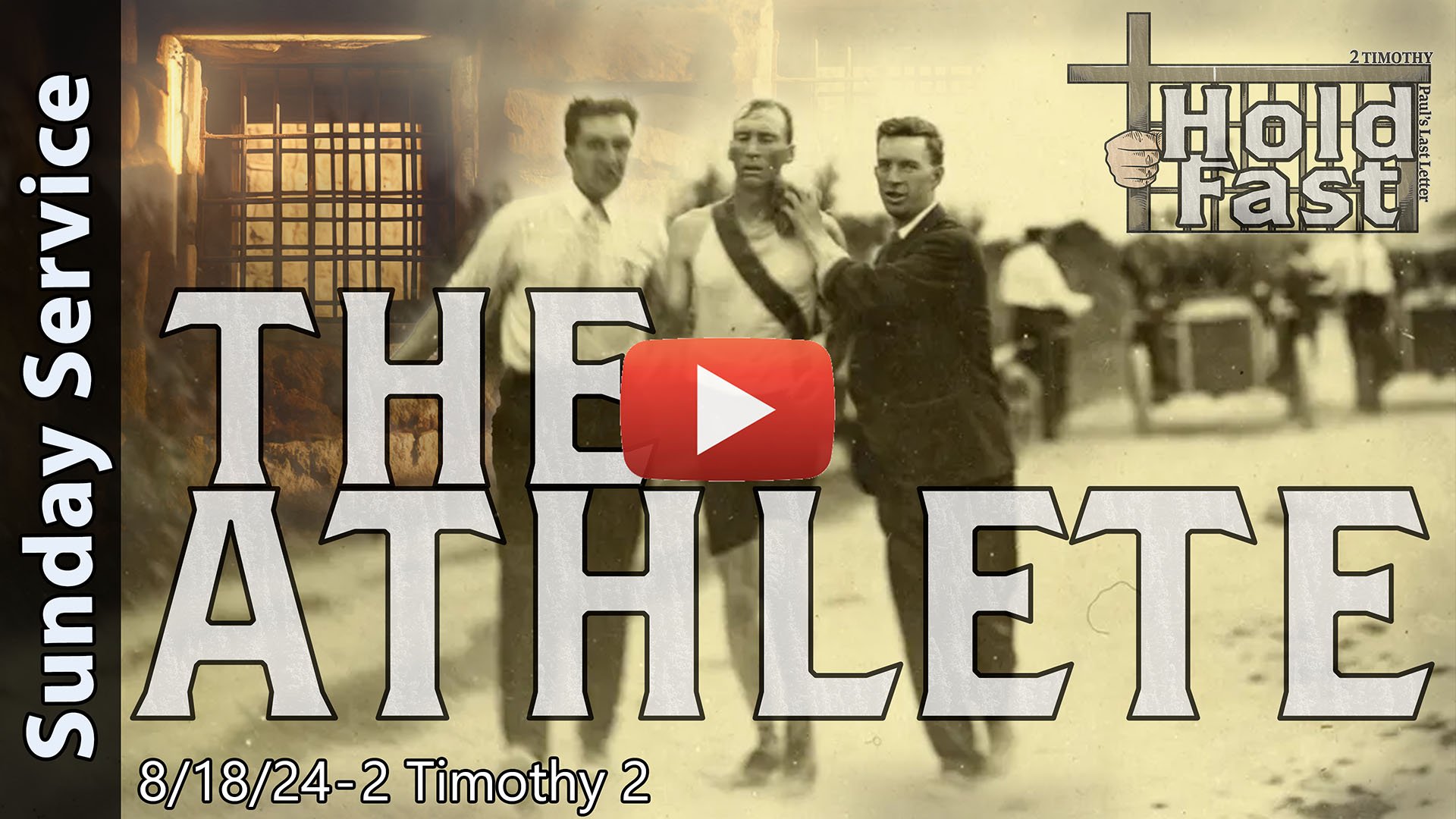

























































































![[Sunday] Not Ashamed - Hold Fast: 2nd Timothy](https://images.squarespace-cdn.com/content/v1/5852f18a20099e30cd2c01dc/1723220103962-9LDTJGWF96Z42ABX1214/Hold+Fast+1a.jpg)



![[Sunday] Them - Missio Dei](https://images.squarespace-cdn.com/content/v1/5852f18a20099e30cd2c01dc/1722534522364-8UDXN9OINQLV9G7434VO/Missio+dei+pt3+7a.jpg)



Ambition Is what we are talking about this week.